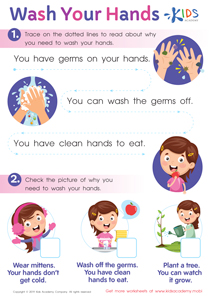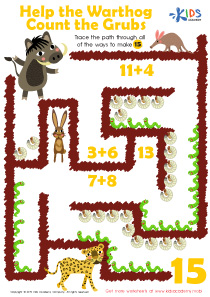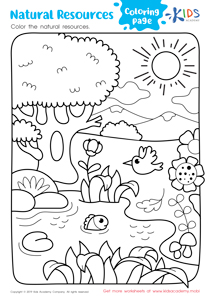Normal Difficulty Online Reading Non-Fiction Worksheets for Kindergarten
5 filtered results
Difficulty Level
Grade
Age
-
From - To
Subject
Activity
Standards
Introducing our curated collection of Normal Difficulty Online Reading Non-Fiction Worksheets, expertly designed for Kindergarten students! Engage young minds with a range of fascinating topics that are tailored to pique their curiosity about the world around them. Each worksheet is crafted to reinforce reading skills at a comfortable pace, ensuring a satisfying learning experience. Perfect for at-home learning or classroom instruction, these printable resources help build a solid foundation in non-fiction literacy. Dive into our Normal Difficulty Online Reading Non-Fiction Worksheets for Kindergarten and watch as your little learners blossom into confident readers with a thirst for knowledge!
Favorites
With answer key
Interactive
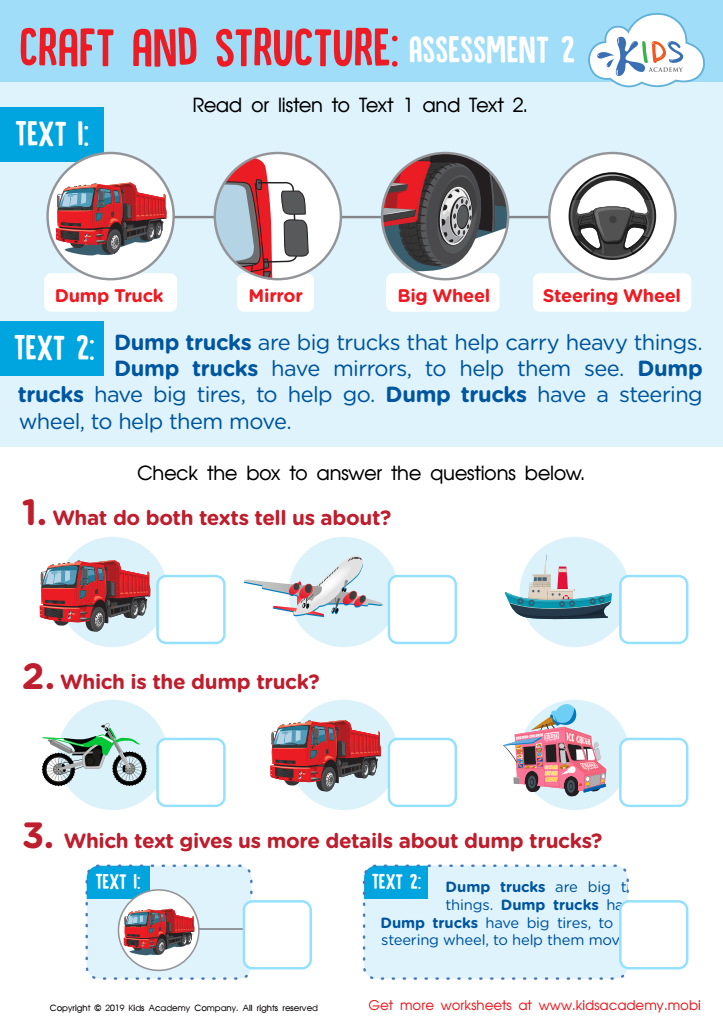

Craft and Structure: Assessment 2 Worksheet
Good readers need to analyze text features and use picture clues to understand. This assessment worksheet gives your child info in different formats and they can show understanding using answer options to check the correct answers. (80 words)
Craft and Structure: Assessment 2 Worksheet
Worksheet
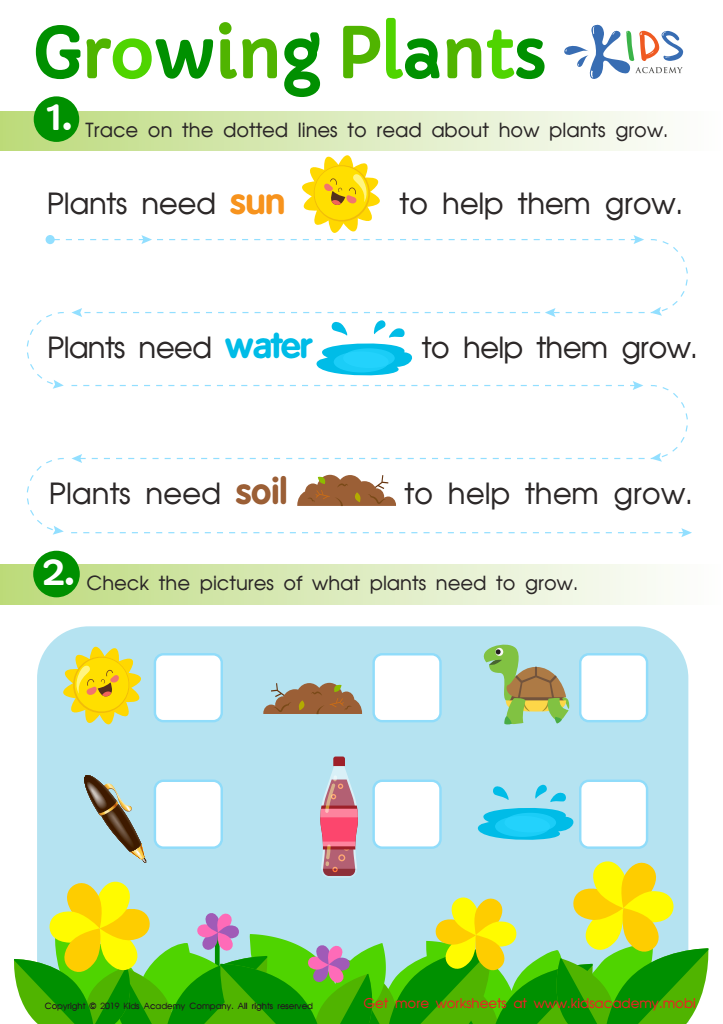

Growing Plants Worksheet
Young gardeners and scientists can learn about what helps plants grow with this fun PDF worksheet. Kids will trace lines to practice left-to-right patterning and use pictures from the rebus story to guide them. Learn that plants need sunshine, water and soil, then check off pictures of what each plant needs. It's an engaging and educational way to help their plants become big and strong.
Growing Plants Worksheet
Worksheet
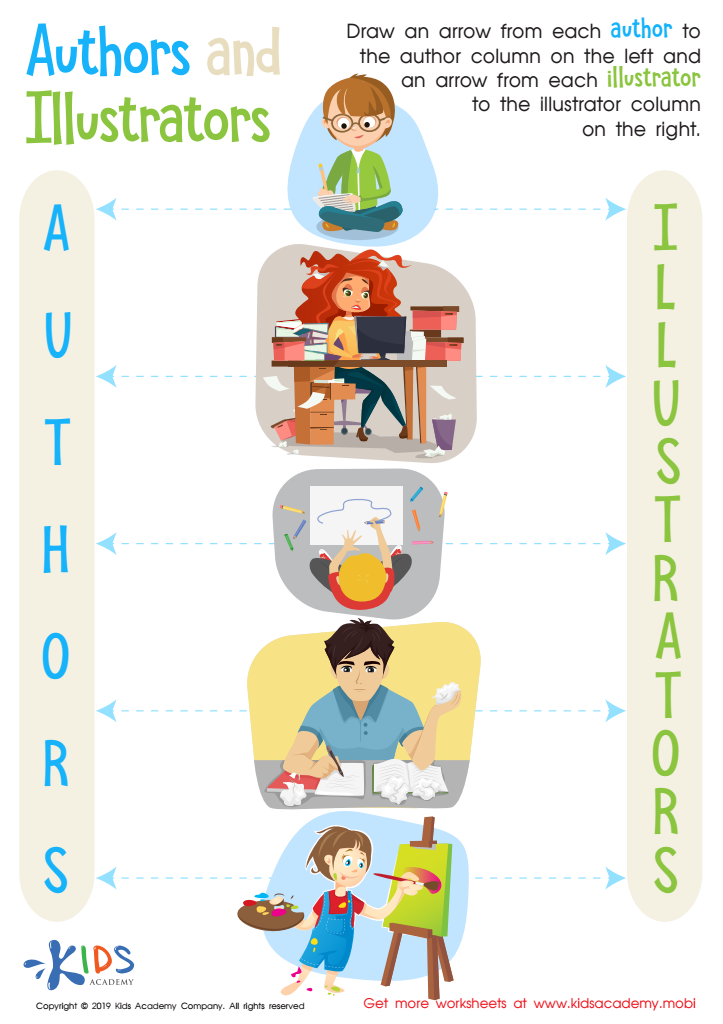

Authors and Illustrators Worksheet
This free PDF provides a simple and fun way to understand the roles of authors and illustrators for beginning readers. It offers concrete pictures of what each one does and traceable lines for children to decide whether they are an author or an illustrator. It will help build their critical thinking skills and foster a better understanding of the book-making process.
Authors and Illustrators Worksheet
Worksheet
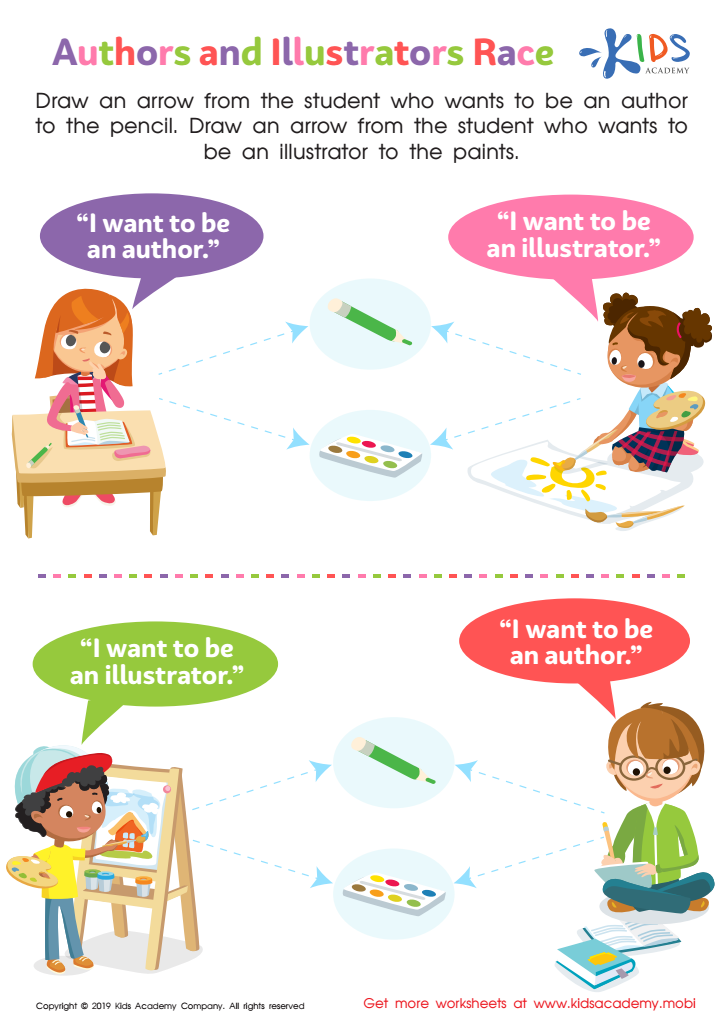

Authors and Illustrators Race Worksheet
Help your child learn about the author and illustrator of a book with this free and colorful worksheet. They'll trace lines to pick the tools used by each and understand the difference between them. It's a great way to introduce fundamental concepts of reading.
Authors and Illustrators Race Worksheet
Worksheet
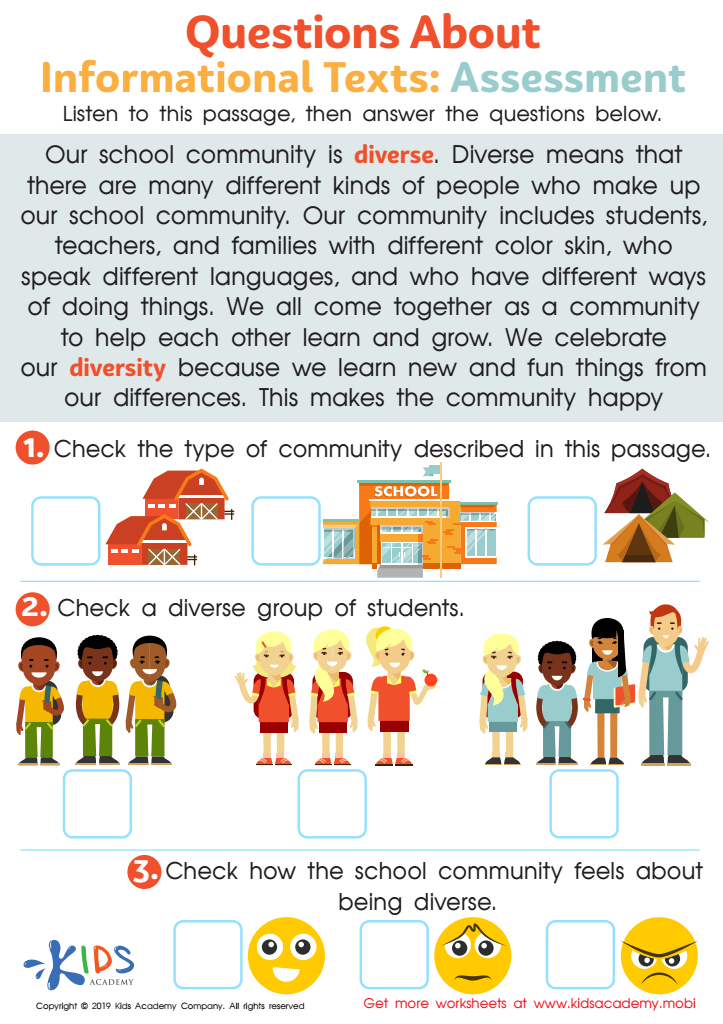

Questions About Informational Texts: Assessment 1 Worksheet
Ask your students: What comes to mind when we talk about a community? What different habits do people practice? What do fellow students do that seems strange? Read this passage aloud to your kindergartners and make sure they understand it. Then, answer the questions at the bottom of the page. (80 words)
Questions About Informational Texts: Assessment 1 Worksheet
Worksheet
 Assign to My Students
Assign to My Students




